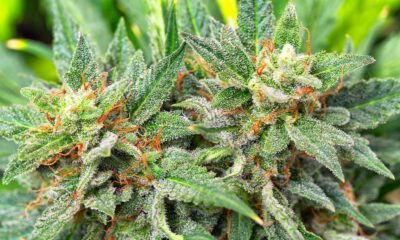In response to growing national momentum towards cannabis re-legalization as well as an increasing number of politicians joining the chorus of voices pushing for an end to prohibition, the Obama Administration has responded by saying they are willing to work on the issue of rescheduling cannabis federally—but only with the support of Congress.
As Attorney General, Eric Holder, who made the announcement Friday, has the power to reschedule any drug federally, but says he will not move on marijuana until he gets support for it.
“We’d be more than glad to work with Congress if there is a desire to look at and reexamine how the drug is scheduled, as I said there is a great degree of expertise that exists in Congress,” Holder said during a House Appropriations Committee hearing. “It is something that ultimately Congress would have to change, and I think that our administration would be glad to work with Congress if such a proposal were made.”
Such a proposal has been made. In February, a bipartisan backed letter from members of Congress was delivered to President Obama asking that he instruct Attorney General Holder to “delist or classify marijuana in a more appropriate way, at the very least eliminating it from Schedule I or Schedule II.”
The concept of “drug scheduling” was introduced in the United States in 1970, when Congress and the Nixon Administration enacted the Controlled Substances Act. The Act served as the nation’s legislation to enact American compliance with the Single Convention on Narcotic Drugs (SCND) Treaty created by the United Nations in 1961.
The SCND was an international treaty signed by 73 nations, including The United States, Mexico, Canada, Afghanistan (the world’s largest opium producer), Uruguay (which just legalized marijuana), Portugal (which decriminalized all drugs in 2001), Peru (the world’s top producer of cocaine), Israel (which can be credited with the most advanced cannabis research in the world) and the Czech Republic ( which was known as Czechoslovakia at the time of signing and is currently undergoing drug policy reforms, including lessening offenses for marijuana possession).
The treaty’s purpose was to regulate and control the international illegal drug trade. Because the United Nations has no authority to actually enact international laws, the treaty was an agreement of these nations to enact domestic legislation to further the goals of the treaty. The United States used the drug schedules created in the SCND to draft its own domestic legislation, The Controlled Substances Act.
The Controlled Substances Act created five drug schedules and tasked both the DEA and the FDA with determining how drugs were scheduled. Schedule I drugs are classified by the DEA and the FDA as having a high potential for abuse and no accepted medical value.
Although most Americans know cannabis to be safer than even sugar, it was listed as a Schedule I drug alongside GHB (the “date rape” drug), heroin, psilocybin (magic mushrooms), MDMA (ecstasy) and LSD. Today, researchers are studying the effects of drugs such as MDMA, psilocybin and LSD as safe and natural alternative mental therapies.
Drugs such as Marinol, an isolated and synthesized form of THC, are listed as Schedule III drugs, meaning they can be prescribed by physicians and distributed in pharmacies. Other Schedule III drugs include Ketamine (an animal tranquilizer), Hydrocodone (vicodin) and Suboxone (a legal pharmaceutical heroin replacement).
While I applaud Eric Holder’s announcement, I think as educated drug policy activists we should be calling for a removal of the drug scheduling system entirely in favor of something that makes more sense—and takes into account 40 years of research, use and progress of these drugs and the effects they have on the general population.
The Schedule I status of cannabis is what has prevented domestic research and is the reason so many Americans have lost their freedom, lives or general wellbeing.
Legitimate research has proven many of the maligned drugs to be safe and the safe drugs to be incredibly harmful, particularly opioid pharmaceuticals such as Vicodin and Suboxone, which actually have a high potential for abuse and can severely damage or kill humans.
Having the nation’s largest prohibition special interest group—the DEA—create and enforce drug scheduling is like asking bankers to just “do the right thing”. The system is broken, let’s completely overhaul it.
Furthermore, Congress has already asked Eric Holder to work on this issue, throwing the ball back in their court would just create a meaningless game of ping pong.
The true end to the War on Drugs is an end to the current regulation and enforcement scheme in this nation. We tried it for 40 years and it isn’t working—Obama, you don’t have to apologize for mistakes that weren’t yours, but we expect you as a former cannabis user and vocal opponent to the Drug War to do the right thing, these breadcrumbs just aren’t enough.
Do you agree with me, should we abolish the current drug scheduling system? Tell us in the comments below?

























